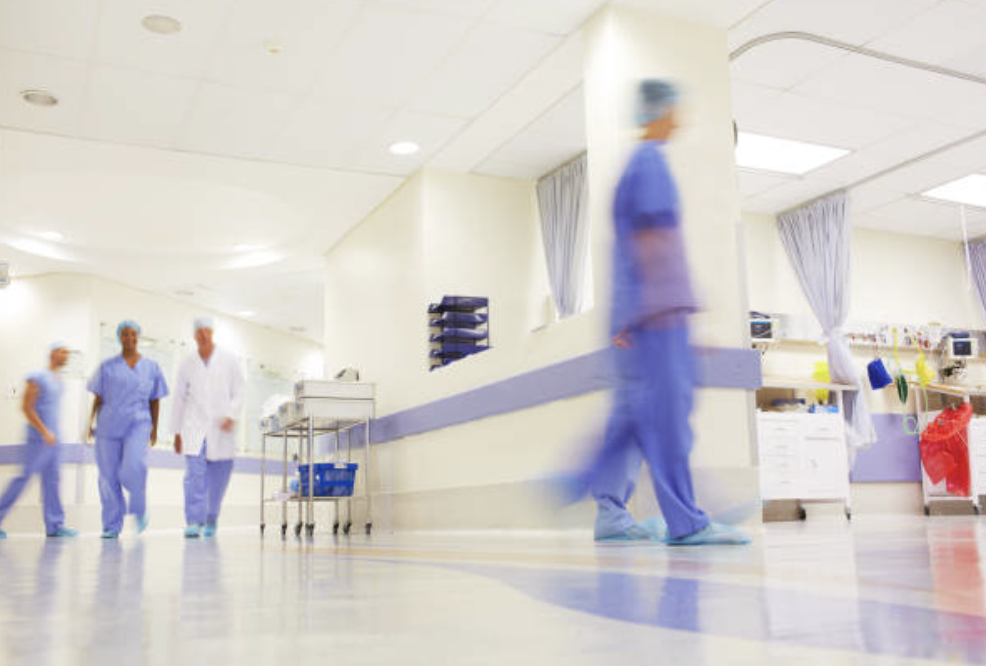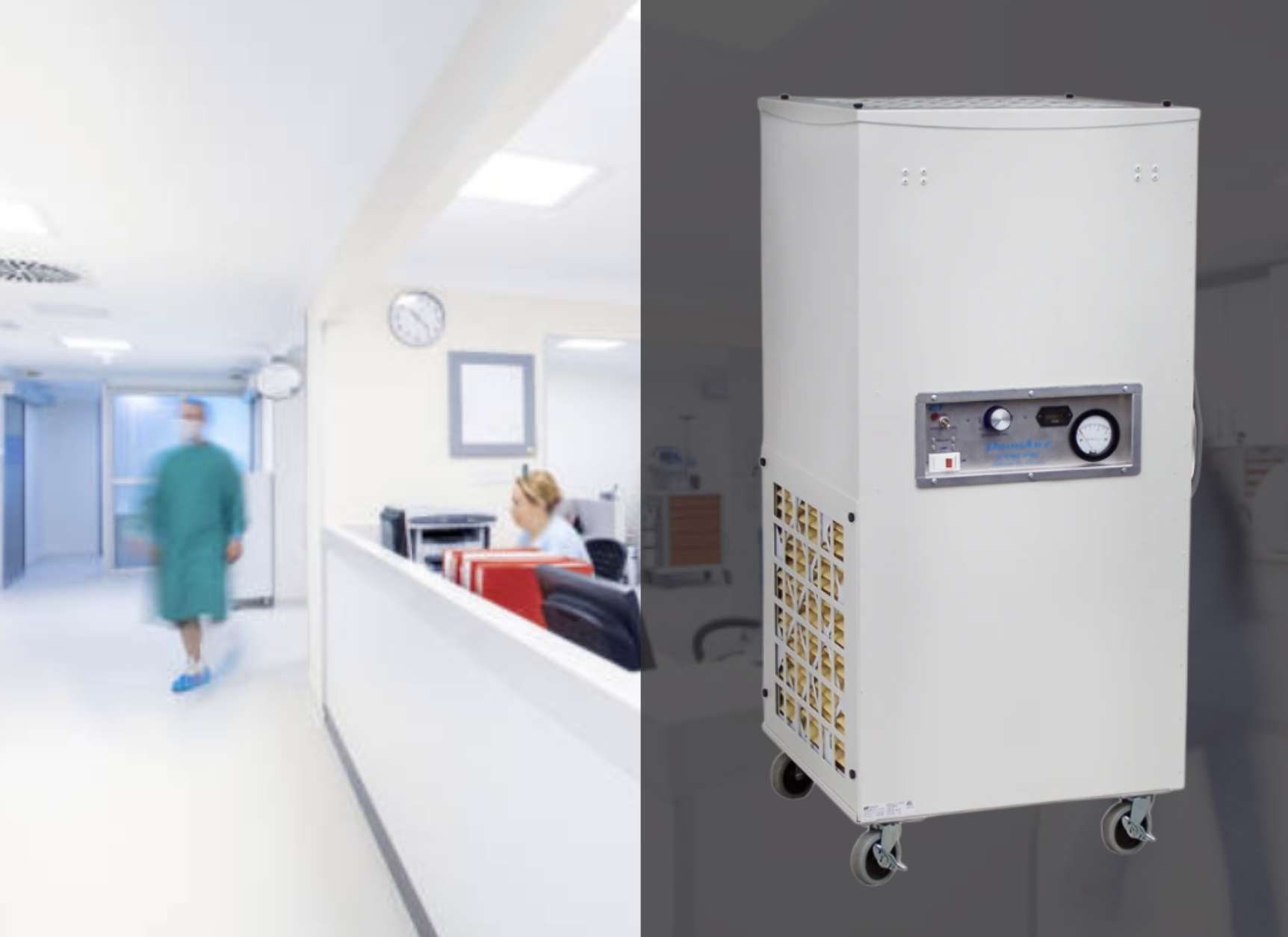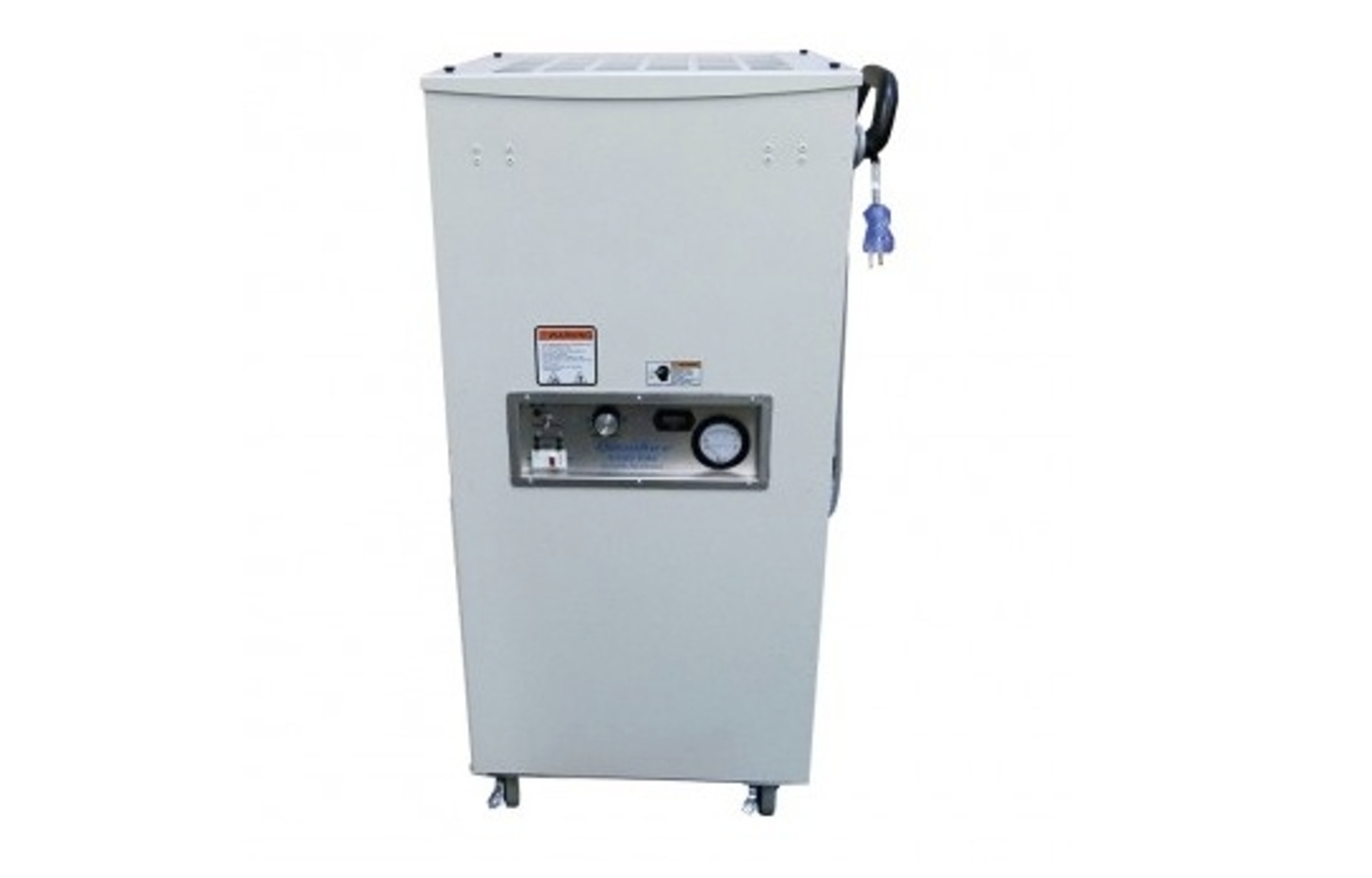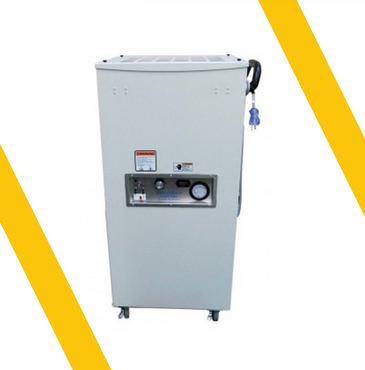Posted by Spycor LLC on Jul 1st 2025

In critical healthcare environments, maintaining pristine air quality isn't just a best practice—it's a necessity for patient safety and staff well-being. Airborne pathogens, volatile organic compounds (VOCs), and microscopic particles pose a constant threat, making advanced hospital air filtration solutions paramount. This is where medical-grade HEPA air purifiers step in, transforming the fight against contamination.
The Unseen Threat: Why Standard Air Isn't Enough
Hospitals, clinics, and laboratories are unique environments. They house vulnerable patients, perform sensitive procedures, and often deal with infectious agents. Standard HVAC systems, while necessary, simply aren't equipped to capture the minuscule threats that can lead to healthcare-associated infections (HAIs). From airborne bacteria and viruses (some as small as 0.1 microns) to dust and allergens, these contaminants can compromise sterile fields, impact recovery, and even spread diseases.
The Power of Medical-Grade HEPA Filtration

At the core of an effective medical air purifier lies the HEPA (High-Efficiency Particulate Air) filter. Unlike typical filters, a true medical-grade HEPA filter is rigorously tested to capture an astounding 99.99% of particles down to 0.3 microns. This level of filtration is crucial for removing even the most challenging airborne contaminants.
Many advanced systems, like the Omniaire OA1200PAC, go a step further by integrating UV air sterilizer technology. Ultraviolet germicidal irradiation (UVGI) works by damaging the DNA and RNA of airborne microorganisms, rendering them inactive and preventing their replication. This dual-action approach—physical filtration combined with microbial inactivation—provides a comprehensive defense against invisible threats.
Key Benefits for Healthcare Facilities:
- Superior Infection Control: By significantly reducing airborne pathogens, these systems drastically lower the risk of HAIs, protecting both patients and healthcare professionals. This is vital for infection control strategies.
- Creating Safe Environments: Whether it's establishing a negative pressure isolation room to contain infectious aerosols or a positive pressure sterile environment for vulnerable patients, portable air filtration systems for hospitals offer the versatility needed for various medical applications.
- Meeting Compliance Standards: For specialized areas like hospital pharmacies USP 797 compounding rooms or cleanroom environments, medical-grade air purifiers help facilities meet stringent air quality regulations and maintain critical contamination control.
- Protecting Vulnerable Populations: In ICUs, burn units, and neonatal care, where patient immune systems may be compromised, ultra-clean air is non-negotiable. A high-efficiency air scrubber with HEPA and UV for medical use provides this vital protection.
- Enhancing Overall Air Quality: Beyond pathogens, these systems effectively remove dust, pollen, mold spores, and even odors, contributing to a more comfortable and healthier environment for everyone. This makes them ideal air purification systems for medical facilities.
The Future of Hospital Air: Portable and Adaptable
Modern portable air cleaners are designed for the dynamic needs of healthcare. Units like the Omniaire OA1200PAC offer high CFM (Cubic Feet per Minute) rates, ensuring rapid air changes in various room sizes, from small isolation areas to larger waiting rooms. Their mobility allows hospitals to quickly deploy robust air purification wherever and whenever it's most needed, from emergency situations to routine patient care areas.
Investing in medical-grade HEPA air purifiers is an investment in safety, compliance, and superior patient outcomes. They are an indispensable tool in the ongoing commitment to providing the cleanest, safest air possible in our healthcare institutions.
Click Here to choose the best medical-grade air filtration system for your facility!

FAQ: Medical-Grade HEPA Air Purifiers & Hospital Air
Quality
Q1: What defines a "medical-grade" HEPA filter?
A medical-grade HEPA filter is tested and certified to capture 99.99% of airborne particles as small as 0.3 microns, exceeding the typical 99.97% standard HEPA. This higher efficiency is critical for healthcare settings where even tiny particles can carry pathogens.
Q2: How do HEPA filters and UV light work together for air purification? HEPA filters physically trap airborne particles, including bacteria, viruses, and dust. UV-C light (ultraviolet germicidal irradiation) then inactivates any remaining microorganisms that pass through, destroying their DNA/RNA and preventing reproduction. This dual approach provides comprehensive air sterilization.
Q3: Can these systems create negative or positive pressure rooms?
Yes, specialized portable air filtration systems for isolation rooms are designed with the capability to create either negative pressure (to contain airborne contaminants within a room, like for infectious patients) or positive pressure (to protect highly vulnerable patients by keeping contaminants out).
Q4: What specific healthcare environments benefit most from these air purifiers?
Hospitals, veterinary clinics, laboratories, hospital pharmacies (especially for USP 797 compliance), isolation rooms, cleanrooms, emergency response shelters, and mobile hospitals are prime environments that significantly benefit from high-efficiency medical-grade air purification.
Q5: How often do the filters and UV lamps need to be replaced?
Filter and UV lamp replacement schedules vary by manufacturer and usage. Generally, HEPA filters require replacement annually or semi-annually, while UV lamps may last 9,000-12,000 hours (roughly 1-1.5 years of continuous operation). Regular maintenance ensures optimal performance.



